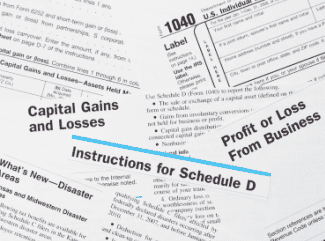Mortgage Interest Deduction Under Fire
Mortgage Interest Deduction, or Renters’ Tax Credit?

One outspoken opponent to changes to housing deductions is the National Association of Home Builders, which presented testimony before the Committee. NAHB called on Congress to maintain its support for vital housing tax incentives, including the Low Income Housing Tax Credit, the mortgage interest deduction and real estate tax deductions to preserve both homeownership, and affordable rental housing.
When it comes to housing and tax reform, the spotlight typically falls on the mortgage interest deduction.  Robert Dietz, an economist and assistant vice president for NAHB, set the record straight on a number of false assumptions regarding this important homeownership benefit.
First, we frequently hear that few home owners benefit from the mortgage interest deduction because itemization is required, he said. In fact, most home owners will claim it. In 2009, 35 million taxpayers, or 70 percent of home owners with a mortgage, claimed the mortgage deduction in that year. Among all home owners who have ever held a mortgage, the vast majority have claimed the home mortgage deduction for years at a time.
Critics charge that the mortgage interest deduction encourages the purchase of a larger home, but these claims ignore the role of family size. Home owners with larger families need bigger homes and will therefore have a higher mortgage interest deduction.
The need for a larger home created the higher home loan deduction, not the other way around, said Dietz.
He also noted that the cost of housing varies greatly across the nation, so what appears to be a large deduction for a given home in one area may reflect a modest home in a high-cost area.
Moreover, the mortgage interest and real estate tax deductions are two of the few elements in the tax code that that account for differences in cost-of-living.
The real estate tax deduction is an important reminder that home owners pay more than $300 billion in property taxes each year. This fact is often ignored in the federal tax debates because these taxes are collected by state and local governments, said Dietz.
Regarding the mortgage interest deduction rule for second homes, Dietz said that many mistakenly think this refers to expensive beach property, when in reality, such homes are often owned free and clear or rented, which excludes the owner from taking the mortgage interest deduction.
In practice, the second home deduction is important for many who don’t think of themselves as owning two homes. Repealing the deduction for second homes would penalize millions of home owners who move from an existing home and buy a second home in a given tax year. There would be further negative economic consequences in terms of lost home sales, home construction and local tax revenues.
A Renters’ World
Recent U.S. Census data shows that more than 40 percent of renters are rent burdened, or pay more than 30 percent of their household income on rent. The need for affordable rental options remains acute. The Low Income Housing Tax Credit (LIHTC) is the most effective tool for the creation of affordable rental housing. Utilizing a public-private partnership to attract investment, the program has produced and financed more than 2 million affordable rental units since its inception in 1986.
As LIHTC properties must generally remain affordable for 30 years, they provide long-term rent stability for low-income households around the country, Dietz said. But the demand for affordable housing far exceeds the availability of financing through the LIHTC program. The solution is not to eliminate the most successful affordable housing program in the country, but to provide it with the resources necessary to address the shortage of affordable housing options in our cities and towns.
The Renters’ Tax Credit
According to The Center on Budget and Policy Priorities, federal housing policies have missed the mark by focusing on increasing homeownership when low-income renters are more likely to pay a higher share of income for housing or to face homelessness.
They say that changes to the mortgage interest deduction — such as a plan to convert to a credit — could offer more support for low and middle income homeowners. Congress could direct a share of the savings from reforming deductions to address the needs of lower income renters, for instance, in the form of a federal renters„¢ tax credit.
According to the CBPP, a federal renters credit could be administered by states which partner with property owners and banks. For instance, states could issue credit “certificates” or allocate credits directly to owners who could then claim a federal tax credit based on the rent reduction. A third option would be to offer the credit to the mortgage-holder in return for lower mortgage payments.
CBPP sees the the renters’ tax credit as supplementing the Low-Income Housing Tax Credit and programs like Section 8.
With AAOA, landlords have resources at their fingertips. Check out our new Landlord Forms Page.
American Apartment Owners Association offers discounts on products and services for landlords related to your rental housing investment, including rental forms, tenant debt collection, tenant background checks, insurance and financing. Find out more at www.joinaaoa.org.















 Accessibility
Accessibility